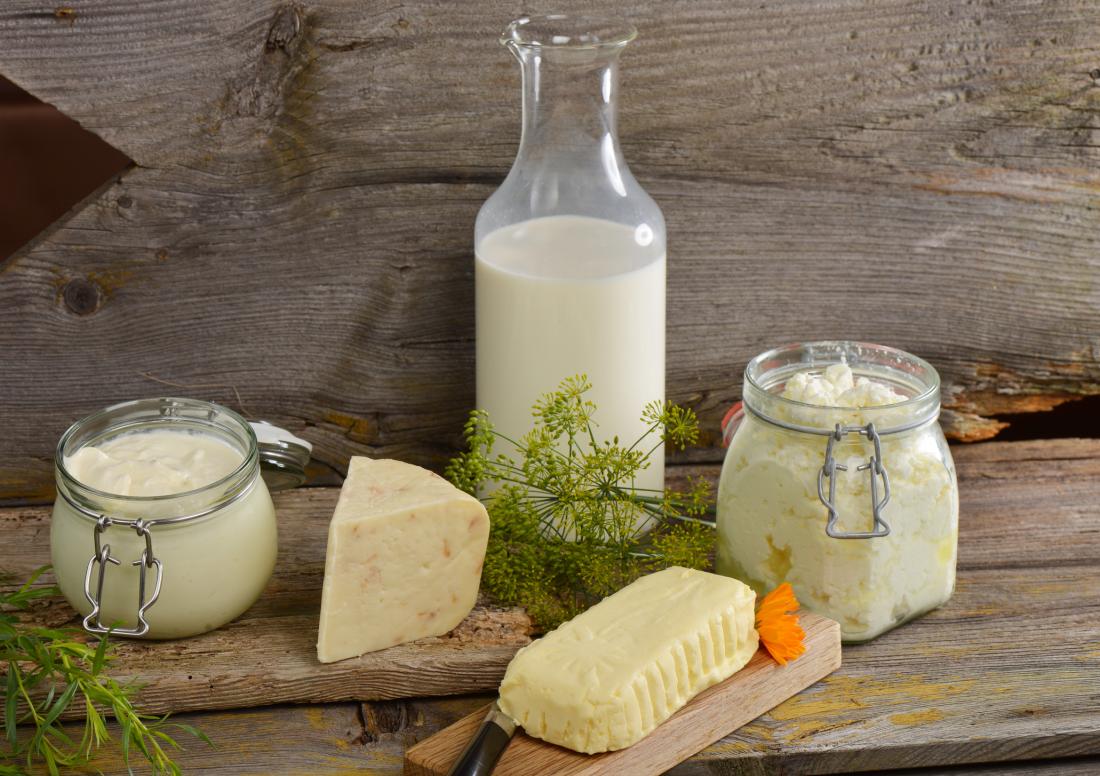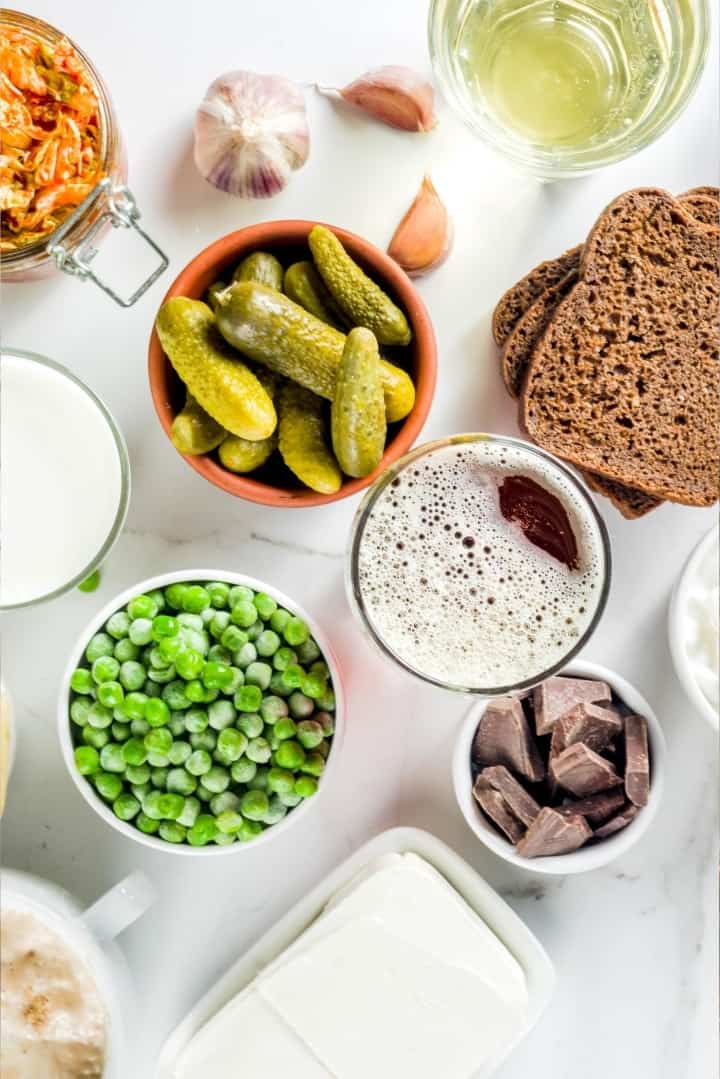
What Is Fermentation?
Fermentation is a natural process that has been used by humans for thousands of years.
It involves the breakdown of organic substances, such as sugars and carbohydrates, by microorganisms like yeast and bacteria.
This process produces energy in the form of ATP (adenosine triphosphate) and various other compounds, including alcohol, lactic acid, and carbon dioxide.
The History of Fermentation
For centuries, humans have utilized fermentation to preserve food and create new products.
Some of the earliest examples include sourdough bread, cheese, and yogurt, all of which rely on microbial activity to transform ingredients into something new.
Advances in Fermentation
As time passed, people began to understand more about the science behind fermentation, leading to advances in brewing, winemaking, and other industries.
These advances allowed for the creation of new and unique flavors, as well as the ability to produce products on a larger scale.
Fermentation has been a key factor in the development of many different cultures and cuisines around the world.
Today, fermentation is still widely used in food production, but it’s also being explored for its potential in fields like medicine and biotechnology.
Researchers are studying the use of fermented foods and probiotics to improve gut health and boost the immune system.
The Future of Fermentation In Our Diet
As technology continues to advance, so does the potential for fermentation.
Scientists are exploring the use of fermentation in the production of biofuels and other sustainable materials.
The possibilities are endless, and the history of fermentation is just the beginning.
Fermentation has the potential to revolutionize the way we produce and consume food, as well as the materials we use in our everyday lives
- Sourdough bread, cheese, and yogurt are some of the earliest examples of fermented foods
- Advances in fermentation have allowed for the creation of new and unique flavors
- Fermentation is being explored for its potential in fields like medicine and biotechnology
- Scientists are studying the use of fermented foods and probiotics to improve gut health and boost the immune system
- Fermentation has the potential to revolutionize the way we produce and consume food, as well as the materials we use in our everyday lives.
The Benefits of Fermentation

Fermentation offers several benefits, both in terms of preserving food and creating new products.
Probiotics and Digestive Health
Fermented foods tend to be rich in probiotics, which can help support digestive health and boost the immune system.
Shelf Life and Food Security
Fermentation can extend the shelf life of perishable foods, reducing waste and improving food security.
Unique Flavors and Textures
Many fermented products have unique flavors and textures that can’t be found in other foods.
Fermented foods like kimchi and sauerkraut have a tangy, sour flavor that can add depth to dishes.
Natural Process
Fermentation is a natural process that doesn’t require the use of preservatives or artificial additives.
Unlike canning or freezing, fermentation relies on naturally occurring bacteria to preserve food.
- Fermentation can also increase the bio-availability of certain nutrients, making them easier for the body to absorb
- Some fermented products, like kombucha and kefir, have been linked to improved gut health and reduced inflammation
- Fermentation can be a fun and creative way to experiment with new flavors and ingredients
From sourdough bread to homemade pickles, there are countless ways to incorporate fermentation into your cooking routine.
The Different Types of Fermentation

There are several different types of fermentation, each with its own set of characteristics.
Here are a few examples:
Alcoholic Fermentation
Alcoholic fermentation occurs when yeast breaks down sugar into alcohol and carbon dioxide.
It’s used to make beer, wine, and spirits.
Lactic Acid Fermentation
In this type of fermentation, bacteria convert sugar into lactic acid.
It’s used to make yogurt, cheese, sauerkraut, and other fermented foods.
Vinegar Fermentation
Vinegar is produced through the oxidation of ethanol by acetic acid bacteria.
It’s often used as a condiment or ingredient in cooking.
Did you know that vinegar has been used for thousands of years for medicinal purposes?
Some types of vinegar, such as apple cider vinegar, are believed to have health benefits such as aiding digestion and reducing inflammation.
- Butyric acid fermentation: This type of fermentation is used to produce butyric acid, which is used in the production of plastics, solvents, and other industrial products
- Propionic acid fermentation: Propionic acid fermentation is used to produce propionic acid, which is used in the production of food additives, pharmaceuticals, and other industrial products
Did you know that propionic acid is used as a preservative in some breads and baked goods?
The Role of Fermentation in Food Production

Fermentation is a crucial process in modern food production, with a wide range of applications across different industries.
Here are just a few examples:
Brewing and Alcoholic Beverages
Beer and other alcoholic beverages are made using yeast-based fermentation processes.
Yeast consumes the sugars in the ingredients and produces alcohol and carbon dioxide as byproducts.
The type of yeast used and the length of fermentation time can greatly affect the flavor and alcohol content of the final product.
Dairy Products
Yogurt, cheese, and other dairy products rely on bacterial fermentation to create their distinctive flavors and textures.
Lactic acid bacteria are commonly used in these processes, which convert lactose (milk sugar) into lactic acid.
This acidification process gives the products their tangy flavor and also helps to preserve them.
Breadmaking
Sourdough bread is made using a combination of wild yeasts and lactobacilli, which ferment the dough and give it its characteristic tangy flavor.
The fermentation process also helps to break down complex carbohydrates in the dough, making it easier to digest.
The type of yeast used and the length of fermentation time can greatly affect the flavor and alcohol content of the final product.
Fermented Vegetables
Sauerkraut and kimchi are examples of fermented vegetable products made using lactic acid fermentation.
This process involves the conversion of sugars in the vegetables into lactic acid by lactic acid bacteria.
The resulting tangy flavor and acidity help to preserve the vegetables and give them a unique taste.
Lactic acid bacteria are commonly used in these processes, which convert lactose (milk sugar) into lactic acid.
Overall, fermentation is a versatile and important process in food production, with applications in a wide range of products and industries.
The Future of Fermentation

As scientists continue to study fermentation, new applications for this process are being discovered.
Medicine
Some researchers are exploring the use of fermented foods and probiotics as a way to promote gut health and treat certain medical conditions.
Biotechnology
Fermentation is being used to produce a wide range of compounds, including biofuels, pharmaceuticals, and industrial chemicals.
For example, some companies are using fermentation to produce alternative proteins, such as plant-based meat substitutes.
Agriculture
Some farmers are experimenting with using microbial-based fertilizers and soil amendments to improve crop yields and reduce the need for synthetic inputs.
These microbial-based products can help to promote soil health and reduce the environmental impact of agriculture.
The Bottom Line
Fermentation is a natural process that has been used by humans for thousands of years.
It involves the breakdown of organic substances by microorganisms like yeast and bacteria, producing energy in the form of ATP and various other compounds.
This process has played a crucial role in food production throughout history, and it continues to be an important part of modern agriculture and biotechnology.
Whether you’re enjoying a cold beer or a bowl of sauerkraut, you can thank fermentation for the unique flavors and textures that make these foods so delicious.
